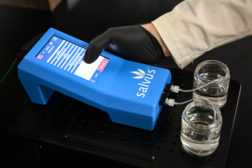Home » PFAS
Articles Tagged with ''PFAS''
Promising Practices are Being Used to Tackle PFAS in Food Packaging
Packaging suppliers, brands, retailers, and post-consumer package waste handlers are focused on adding value by mitigating PFAS in packaging
December 12, 2023
Never miss the latest news and trends driving the food safety industry
eNewsletter | Website | eMagazine
JOIN TODAY!Copyright ©2025. All Rights Reserved BNP Media.
Design, CMS, Hosting & Web Development :: ePublishing











